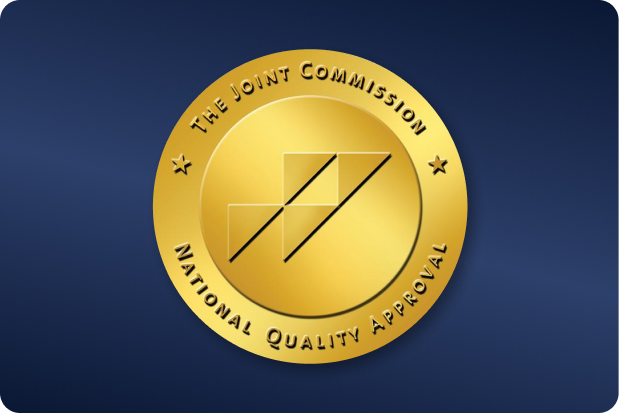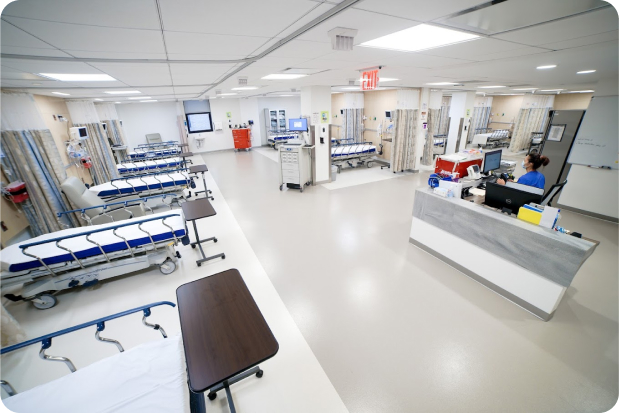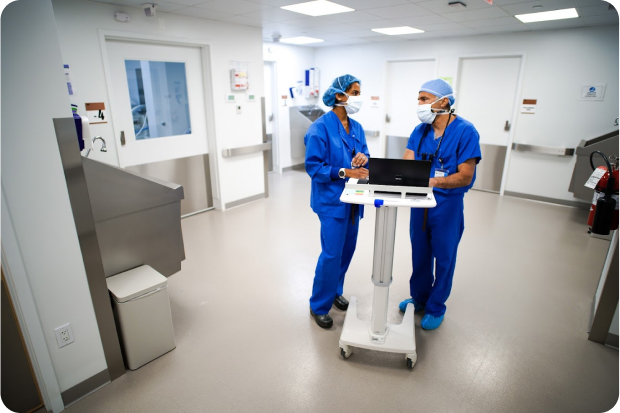 OUR LOCATIONSCall to book (212) 604-1300
OUR LOCATIONSCall to book (212) 604-1300
 OUR LOCATIONSCall to book (212) 604-1300
OUR LOCATIONSCall to book (212) 604-1300
Herniated disc issues are usually associated with chronic or acute low back pain, muscle weakness, and occasional numbness of the upper and lower extremities. However, there are a number of patients who may also experience other symptoms such as problems with digestion.
So how does disc herniation contribute to digestive issues like constipation? A herniated or slipped disc occurs in the spinal cord, and there are several nerves that are responsible for normal digestive, bladder, and bowel function. If a spinal disc herniates or bulges, it could disrupt the nerve signals to the digestive system and lead to constipation problems.
The spinal cord is a complex structure consisting of different cells, tissues, and nerves. It’s contained in the spinal column which is composed of 33 vertebrae with protective discs that provide a cushion to minimize the damage to the spine.
The main function of the spinal cord is to deliver signals from the central nervous system to the rest of the body. Since it’s a pathway for communication, an injury to the spinal structures, such as spinal cord compression or herniated disc, can affect the nerves that control your digestive system. To better understand, here are the two nerves that are connected to your digestive function:
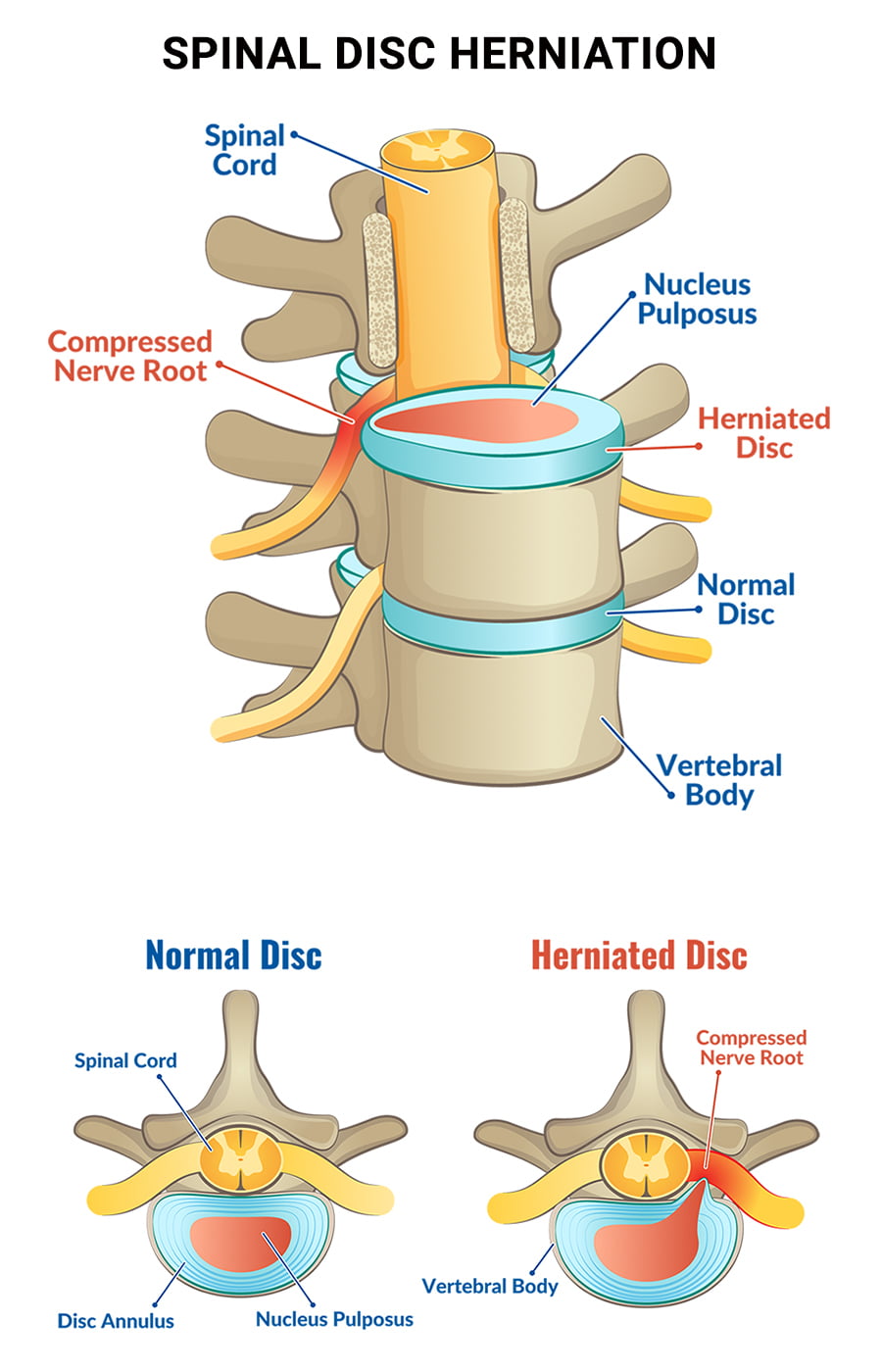
A direct injury or damage to the spine can cause several disorders and one of the most common conditions is a herniated disc. A disc herniation can occur anywhere in the cervical, thoracic, or lumbar spine.
An intervertebral disc is made of a thick outer covering called the annulus fibrosus and a soft inner gel-like core known as the nucleus pulposus. Its unique structure minimizes the friction against each of the bones and helps absorb shock from a sudden impact. Unfortunately, as you age, the discs lose their strength and flexibility which can lead to a small tear in their annulus and result in a herniated disc.
Once the nucleus leaks out of the disc and into the spinal canal, it can irritate the nearby nerves and cause a variety of symptoms such as neck pain, lower back pain, tingling or numbness in the lower and upper body, and muscle weakness. In severe cases of disc herniation, it may also affect the nerves connected to the digestive system and lead to neurogenic bowel dysfunction or constipation.
Constipation is one of the common digestive disorders that happens when you have difficulty emptying your bowel. It’s usually a result of the slow movement of food through the digestive tract, which can be influenced by a herniated disc in the spine. It may also occur because of a blockage in the large intestine.
Here’s what constipation from herniated discs typically looks like:
Aside from bulging or herniated disc problems, there are other conditions that may contribute to feelings of constipation. Here are some of the other possible reasons for having difficulty in bowel function:
Most of the time, constipation and herniated disc can go away on their own without immediate medical treatment. But note that if you’re experiencing persistent lower back discomfort and bowel issues, you’ll need to visit a specialist and review your options for pain management. Here are some of the possible solutions for your herniated disc and constipation issues:
A bowel program can help restore healthy and normal function to your digestive system. Its goal is to establish a regular schedule that will stimulate the bowels to empty themselves. It can help improve involuntary bowel movements and reduce the symptoms of constipation.
A bowel program typically involves diet recommendations for restoring good bowel health. It can also provide a list of the best techniques that will help you easily pass stool. If needed, your plan may also contain a variety of pain medicine options and stimulant laxatives.
Anti-inflammatories, muscle relaxants, and pain killers can also be prescribed by your doctor to treat a herniated disc. Over-the-counter medicines can provide temporary herniated disc pain relief and manage swelling of the affected spinal nerve.
A laxative contains different stimulant chemicals that will accelerate stool movement so you can empty your bowels faster. There are also other laxatives that soften the stool by decreasing the tension and absorbing more water so they’ll be easier to release. It’s important to note that taking too much of laxatives can have some side effects, which is why you should use them under prescription.
There are physical therapy exercises that can benefit people with both constipation and herniated disc problems. For alleviating disc herniation, a physical therapist can recommend a program that’s focused on reducing strain on tight muscles, relieving pressure on nerves, and restoring good blood circulation.
On the other, physical therapy for constipation will typically include activities for improving the pelvic floor muscles. One example is Kegel exercises which can provide ease in bowel movement and enhance the coordination of the muscles.
Herniated discs and constipation rarely need surgical treatment and they’re only recommended when symptoms aren’t improving with conservative methods. Spine surgery may be done to remove a part of the herniated disc and eliminate the pressure on the nerve. Meanwhile, a colon resection surgery or colectomy may be performed to remove a part of your colon or the entire large bowel.
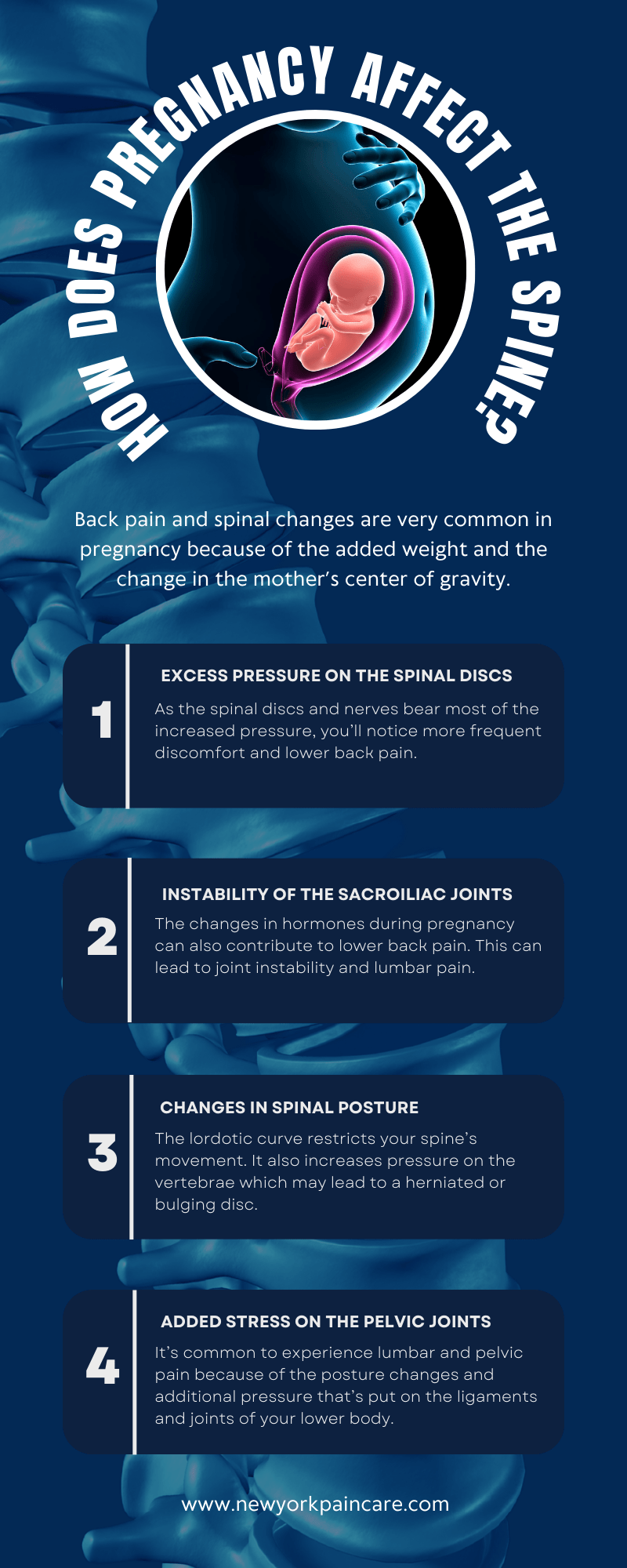
While they’re not exactly life-threatening, untreated constipation and herniated discs can lead to several problems that will have a negative impact on your quality of life. Here are some of the possible complications that can occur if you don’t get urgent care for chronic pain from herniated disc and constipation:
It’s not unusual for lower back pain to be accompanied by constipation, especially if it’s caused by a herniated or bulging disc. Although self-care is possible for temporary pain relief, the best way you can relieve its symptoms is to visit your doctor to receive the appropriate treatment.
At our pain management clinic in New York, we provide safe and effective nonsurgical treatments to help manage your herniated disc pain and other related conditions. Our team of specialists will provide an accurate diagnosis and prepare a treatment plan that will help reclaim your comfort and quality of life. To schedule your initial consultation or to inquire about our other services, call us now.



